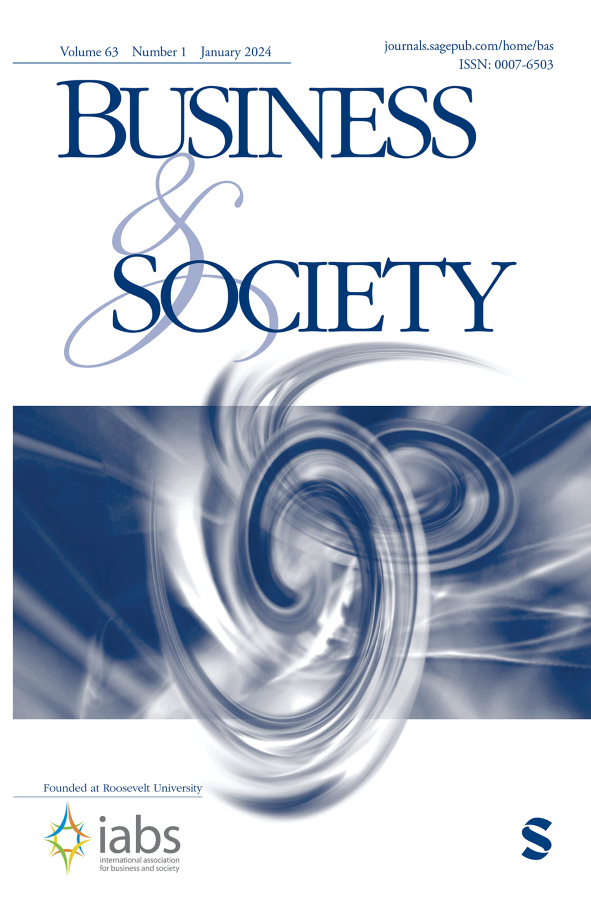焦土:雇主对难民融入劳动力市场的信任遭到破坏
IF 6
3区 管理学
Q1 BUSINESS
引用次数: 0
摘要
就业对难民积极融入接受国至关重要。促进就业需要跨部门合作,即雇主与难民、当地雇员、其他雇主、非官方/官方支持者和当局等不同利益攸关方合作。跨部门合作的一个重要因素是信任,但跨部门合作的复杂性可能对信任的形成和维持构成挑战。本文采用理论阐述的方法,对德国的37名雇主和27名支持工作者进行了定性研究,探讨了雇主在难民劳动力市场整合方面的跨部门合作经验如何影响他们对跨部门空间中其他利益相关者的信任。具体而言,我们探讨了雇主对信任违约的看法,以及这些看法如何影响他们进一步参与难民融合的跨部门合作。基于我们的研究结果,我们提出了一个过程模型,该模型描述了未满足的合作期望和对合作者态度和行为的负面评估如何导致感知到的信任违约,进而导致雇主在雇用难民和/或参与跨部门合作方面犹豫不决。在此过程中,我们将现有的组织内信任理论扩展到难民融入的跨部门背景下,揭示了可信度维度的特定背景含义,并说明了不同可信度维度的违规行为如何相互作用。此外,我们还展示了社会政策、资源和委托人在合作中感知到的脆弱性如何影响他们的风险感知。本研究强调了信任对难民融合的核心作用,并说明了缺乏目标和进程清晰度如何危及可持续合作。本文章由计算机程序翻译,如有差异,请以英文原文为准。
Scorched Earth: Employers’ Breached Trust in Refugees’ Labor Market Integration
Employment is critical for refugees’ positive integration into a receiving country. Enabling employment requires cross-sector collaborations, that is, employers collaborating with different stakeholders such as refugees, local employees, other employers, unofficial/official supporters, and authorities. A vital element of cross-sector collaborations is trust, yet the complexity of cross-sector collaborations may challenge the formation and maintenance of trust. Following a theory elaboration approach, this qualitative study with 37 employers and 27 support workers in Germany explores how employers’ experiences in cross-sector collaborations on refugees’ labor market integration affect their trust in other stakeholders in this cross-sector space. Specifically, we explored employers’ perceptions of trust breaches, and how these perceptions affect their further engagement in cross-sector collaborations on refugee integration. Based on our findings, we propose a process model that describes how unmet collaboration expectations and negative assessments of collaborators’ attitudes and behaviors lead to perceived trust breaches which, in turn, lead to employers’ hesitancy to hire refugees and/or to engage in cross-sector collaborations. In doing so, we extend existing theory on trust within organizations to the cross-sector context of refugee integration, uncovering context-specific meanings to trustworthiness dimensions and illustrating how breaches of different trustworthiness dimensions can interact. Moreover, we show how social policies, resources, and trustors’ perceived vulnerability in collaborations shape their risk perceptions. This study highlights the central role of trust for refugee integration and illustrates how missing goals and process clarity endanger sustainable collaborations.
求助全文
通过发布文献求助,成功后即可免费获取论文全文。
去求助
来源期刊

Business & Society
BUSINESS-
CiteScore
14.80
自引率
11.40%
发文量
56
期刊介绍:
Business & Society publishes original research, book reviews, and dissertation abstracts relating to business ethics, business-government relations, corporate governance, corporate social performance, and environmental-management issues. Manuscripts relating to the field of business and society in general are also published. Submissions of theoretical/ conceptual work as well as empirical studies are encouraged. Business & Society is the first peer-reviewed scholarly publication devoted exclusively to the field of business and society, and it is the official journal of the International Association for Business and Society (I.A.B.S.), the only independent professional association dedicated to business and society teaching and research.
 求助内容:
求助内容: 应助结果提醒方式:
应助结果提醒方式:


